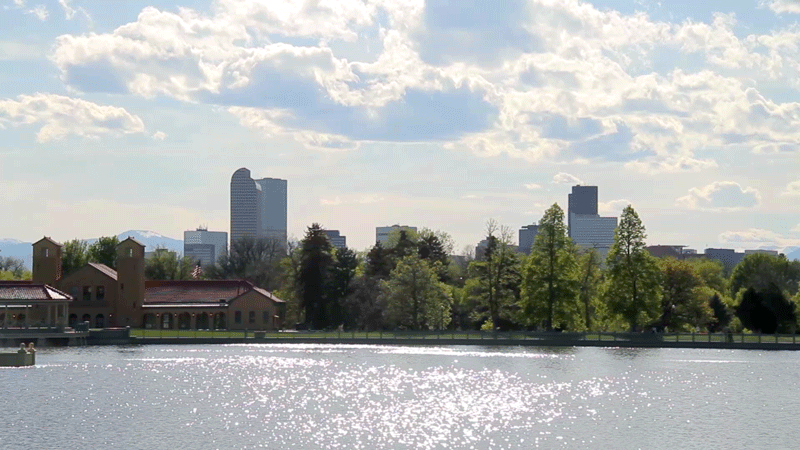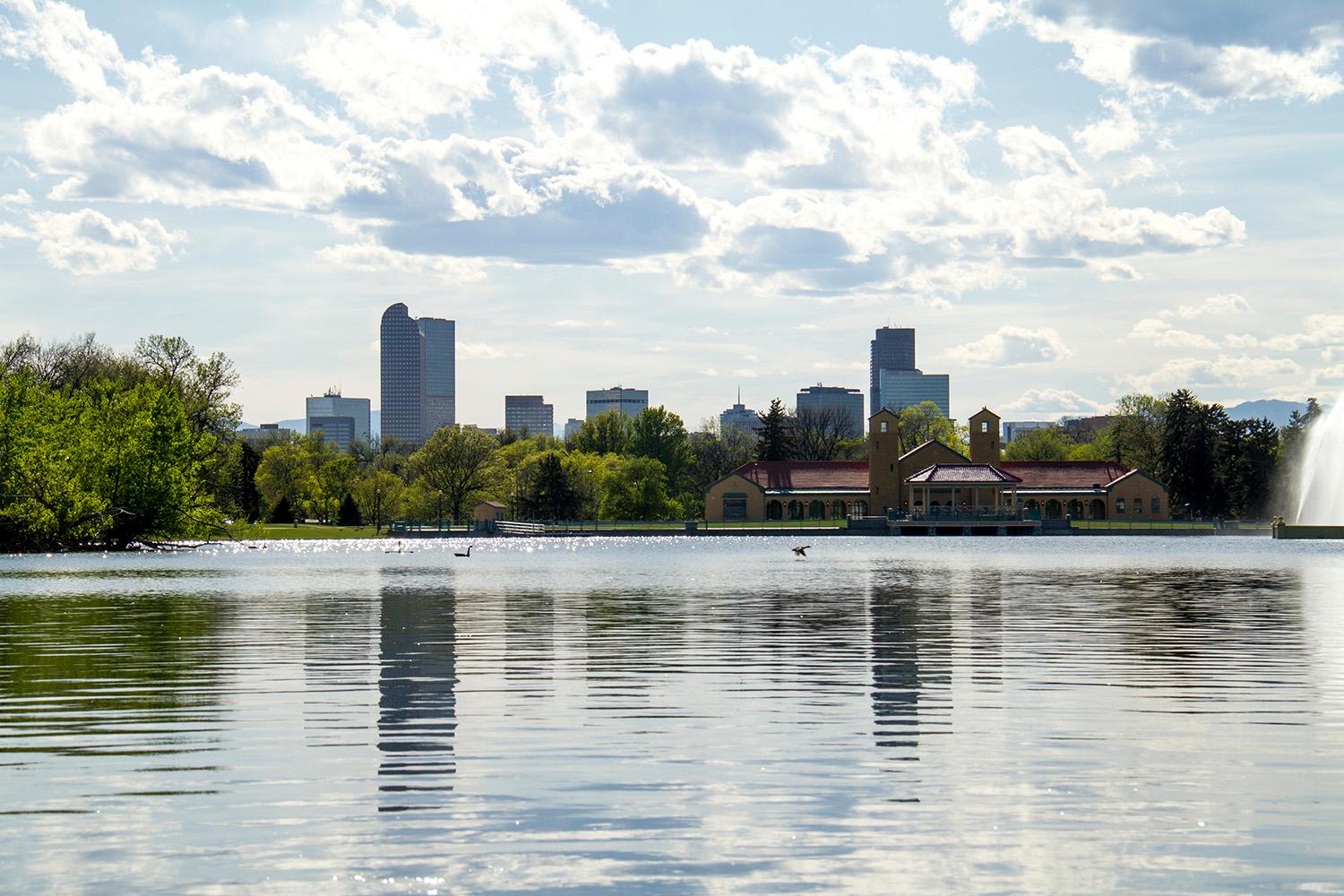
Some 1,000 people per month are moving to Denver while longtime residents are feeling squeezed out, and those pressures are reflected in the 2017 proposed budget released Monday by Denver Mayor Michael Hancock.
The spending plan calls for more permitting staff to deal with a historic backlog in Community Planning and Development, more resources for affordable housing, new police officers -- including 16 just to patrol the 16th Street Mall -- and an entire new road crew just to work on arterial streets. It also calls for more child welfare case workers and a longer summer season for five of the city's outdoor pools, among other items.
"With this budget we are delivering in a very sincere fashion on our priorities," Hancock said.
The total proposed budget is $1.92 billion, a 4.2 percent increase over 2016. Roughly $1.3 billion of that is the general fund that covers basic city services like police, fire protection, libraries and roads. The general fund is increasing 4.5 percent over 2016.
The budget assumes sales and use tax growth of 3.3 percent. This year it has been more than 6 percent.
The budget adds the equivalent of 441.51 permanent full-time employees, bringing the total number of permanent city employees to 11,443. The 2017 budget also includes 990 temporary positions, which is a little less than last year.
Chief Financial Officer Brendan Hanlon said the city has divided the new employee positions between permanent and temporary roles such that the new hiring should be "sustainable" even when the economy inevitably enters into another recession.
Some highlights of the 2017 budget:
- 48 new police officers, with 16 of them to focus just on patrolling the 16th Street Mall
- Body cameras for police officers to use when working security at private events and for sheriff's deputies who serve warrants
- 37 new employees, an entire road crew, just to work on arterial and collector streets, at a cost of $7 million
- $2.5 million to install sidewalks on city-owned properties like parks, libraries and recreation centers to fill in literal gaps in Denver's pedestrian networks
- Extended hours through Labor Day for five city pools: Barnum, Berkeley, Congress, Eisenhower and Curtis
- $2.2 million to complete (or very nearly complete) the transition to automated carts for garbage pickup
- $2.5 million for additional bike infrastructure
- 30 additional permitting staff to speed up the process of getting building permits
- $5 million for affordable housing out of the general fund, to be accompanied -- if the City Council agrees - by another $10 million funded by a property tax increase and impact fees
- $600,000 to create the new office of Housing and Opportunity for People Everywhere (HOPE) to coordinate homeless and affordable housing services that exist in other departments and agencies
- $500,000 to help low-income households afford higher wastewater and stormwater fees
- 23 new child welfare case workers and 21 caseworkers in adult and family services
Later tonight, the City Council will take its first vote on the affordable housing proposal, with a number of council members supporting a proposal from Councilman Chris Herndon to delay the impact fees and property tax increase and instead use reserves to spend more on affordable housing while doing more study and outreach on a permanent funding source.
The proposed budget includes a reserve of 15.2 percent or $201.3 million. That's in addition to almost $26 million in general fund contingency and $3.6 million in the capital improvement budget for unexpected needs.
"This is a significant achievement and highlights the city's strategy of building back to 15 percent of expenditures, from a low of 10.7 percent during the recession," officials wrote in the budget summary.
Hanlon said he would recommend the city not allow its budget reserves to go below 15 percent, and Deputy Chief of Staff Evan Dreyer said the city would need to reconsider the entire budget and reduce spending in other areas if the City Council wants to use reserves to pay for affordable housing.
"This proposal ensures we will continue to be good stewards of the taxpayer's dollars while addressing city priorities," Hanlon said.
Hancock said the decision to increase police officers on the 16th Street Mall comes in response to community concerns and awareness of the economic impact of downtown tourism.
"Safety in our city is our number one priority, and protecting our central corridor is very important," he said.
However, the majority of the new police officers will be deployed around the city.
Denver Police Chief Robert White said the additional police officers are much needed.
"When I saw the budget this year, I had to read it four or five times to make sure I was really seeing it," White said. "I am elated."
Denver’s safety agencies get a combined recommended budget increase of $25 million, or about 5 percent. The hiring of 48 police officers is obviously the big-ticket item, but there are a few interesting notes too, including:
- A new oversight team of 3.5 full-time equivalent positions for the Denver County Sheriff’s Office
- Three physical therapists for the Department of Safety
- Two new full-time employees for the Gang Reduction Initiative of Denver, which would double its size
- A team of 12 full-time equivalent civilian “report technicians” who could investigate and document property crimes and certain car crashes
Parks and public spaces would get a bump in line with other departments, with a relatively large 7.5 percent increase for the Denver Public Library, which would allow the library to extend some branch hours. Among other interesting items: a plan to plant 5,000 trees per year to replaced trees killed by the Emerald Ash Borer.
City pools traditionally have closed in mid-August when high school students, who make up most of the lifeguards, go back to school, but next summer, five outdoor pools will stay open through Labor Day. This will provide a few more weekends of summer for an estimated 8,000 to 9,000 swimmers.
Public works would take on four people to manage its capital projects as well as a new water-quality engineer, among other hires. The department also proposes $200,000 in spending on an awareness campaign for Vision Zero, the goal of having zero traffic-related deaths.
Public works aims to build eight enhanced pedestrian crossings and 15 miles of new bike lanes and bike markings, its highest number in recent history. The plan also would significantly increase spending on street lighting, from $2.6 million to $3.1 million, to deal with replacing corroded poles.
The department also plans to add four new compost collection routes, aiming to nearly double the amount of compost collected, along with three new recycling routes. The composting change would drive up costs for that program from about $834,000 to $1.4 million for the year.
Human services would significantly increase spending on child welfare for the second time in a row, this time boosting spending from about $36.1 million to $42 million, an increase of about 16 percent.
Human services would spend about $511,000 on 10 full-time equivalents for records management and $285,000 for five positions for its fraud and investigations unit.
Community Planning and Development would get an increase of 10.4 percent, to $28.8 million. Development Services, which is funded by licenses, permits and fees, is asking for a 7.78 percent increase to $18.9 million and the Planning Division is asking for an increase of 27 percent to $5 million.
The department expects to issue 82,000 building permits by the end of 2016 and conduct 237,775 inspections. There could be another 82,000 building permits and 245,000 inspections next year.
"Plan review activity associated with building permit applications continues to increase well beyond pre-recession levels," city officials wrote in the budget.
The budget calls for four inspector positions, an associate city planner, a plans review engineer and two plans review technicians -- eight positions in all -- just to deal with permitting and inspections related to the Denver International Airport renovation.
The city is also looking to hire more inspectors, permitting personnel and planners to serve the general public, including planners to help complete neighborhood plans to guide development in accordance with community desires.
The 2017 budget calls for $232 million in capital improvements, with $43.9 million of that money coming from one-time transfers from the general fund.
Among the projects funded by the general fund transfer are $19.1 million specifically for "mobility." That's stuff like sidewalks, bike lanes, bus stops, intersection improvements and preliminary engineering to eventually bring bus rapid transit along Colfax Avenue.
The capital maintenance mill levy will provide $33.6 million in addition to $32 million in regular capital funding for repaving of 430 lane miles of city streets, rehabilitating recreation centers, rebuilding traffic signals and restoring public art.
The capital improvement budget includes $3.3 million for projects associated with the North Denver Cornerstone Collaborative -- that's the National Western and all the neighborhood and transportation redevelopment associated with it -- with the largest share, $2.5 million, going for Brighton Boulevard. The budget calls for $300,000 for bus stops in Globeville, Elyria and Swansea and $500,000 for a safe pedestrian and bike crossing where the railroad cuts through Elyria-Swansea at 47th Avenue and York Street.
Andrew Kenney contributed to this report.
Assistant Editor Erica Meltzer can be reached via email at [email protected] or twitter.com/meltzere.
Subscribe to Denverite’s newsletter here.














